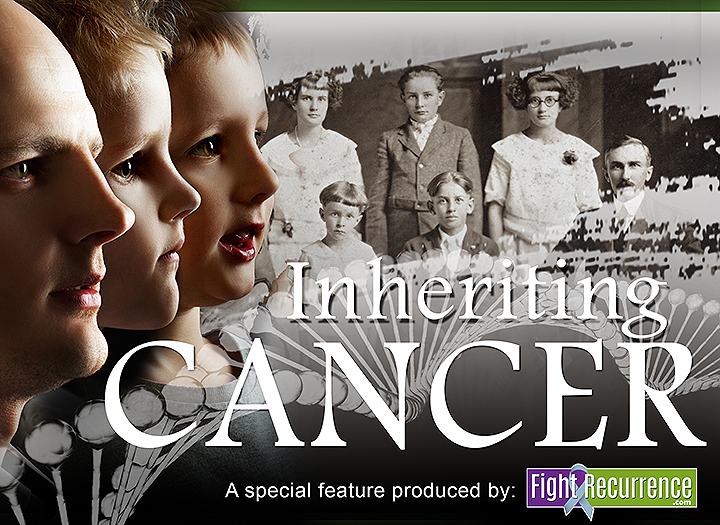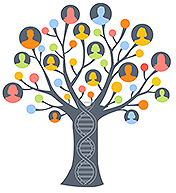
ADDRESSING "CHEMO BRAIN?" |
|||
WHAT IS IPT? Dr. Donato often establishes the scientific background about disease only occurring within the cell. He explains that "a cell is the basic unit of the body. When one or more of the cellular components do not perform their physicochemical function, alterations are generated that give manifestations and that is a disease. Many chronic degenerative diseases like Respiratory diseases, Gastric diseases, Gastritis, Rheumatoid Arthritis, Lupus, Osteoporosis, Sarcoma, Hodgkin’s Lymphoma, ME, Chronic infections, Prostatitis, Colitis, as well as cancer, to treat them medically, it is necessary to enter the interior of the cell to carry out the physicochemical corrections that reverse the alterations of one or several cellular organelles and thus restore the state of health. For the treatment of many diseases, it is necessary to use an integrative program that includes nutrition and some complementary therapies to restore cell function or sometimes to prepare the body to receive stem cells. (see complete report) |
|||
"CANCER IS SNEAKY" Recurrence rates depend on the type of cancer. According to the Journal of Clinical Oncology, an international study group reviewed recurrence rates for Breast Cancer (at a24 Years of Follow-Up) reported risk of recurrence was highest during the first 5 years (10.4%), with a peak between years 1 and 2 (15.2%). During the first 5 years, patients with estrogen receptor (ER) – positive disease had a lower annualized hazard compared with those with ER-negative disease (9.9% v 11.5%; P = .01) [Journal of Clinical Oncology- source].
"Stay CANCER-FREE... Be CANCERSMART!" To be safe, it is suggested to look upon the first bout with cancer as a signal to be VIGILANT ABOUT CANCER RE-OCCURRING, whereby CANCER RECURRENCE has a tendency to happen with a vengeance. Where deadly METASTASIS is the ultimate enemy of it all, global cancer awareness needs an upgrade in its message. The NY Cancer Resource Alliance offers a proactive strategy dedicated to "Getting Checked Now!" and KEEPING IT AWAY with prevention programs and life-saving resources. "Fight Recurrence" was originally launched within the firefighter community in NYC (9/11 responders) and has proven effective to battle re-occurrence and potential metastasis. see: www.healthscannyc.org Thanks to alliances with organizations like the Male Breast Cancer Coalition, Movember and Firefighters Against Cancer Exposures, FIGHT RECURRENCE is the ultimate front line in the war against cancer. We offer ALL initiatives to keep cancer from returning where it often means facing a tougher (and even more LETHAL) battle than the first. * See complete article in Journal of Modern Healing |
|||
In simplistic terms, having a full-body access comports to the fact that everything is connected in one way or another. Tumor cells start somewhere, but they can spread almost anywhere they want. If we find a cancer in stage one (which usually means confined to the organ of origin) what happens afterwards is to ask if it is IN FACT confined to that organ, or if it has spread somewhere else. This is called staging. After a cancer is detected, patients often go into a panic asking "What stage is it? ... Is it metastatic?" Working with the conventional MRI or CT of the past, they would have to wait to get a brain MRI, then a chest, abdomen, pelvis study and a bone scan etc. With our technology, we already have all that. We've routinely found people with stage one cancer as part of early detection. This is a good basis where you want to find it. From here, searching 'full body' is the best next step to make sure that it's not anywhere else in the body. Using an MRI with diffusion, we can see it all. (see complete feature in Journal of Modern Healing) |
|||
Go "EARLIER" with EARLY DETECTION (for women ages 20-40) |
|||
LAUNCHING IN 2024: NATIONAL COALITION OF WOMEN'S HEALTH SUPPORT |
|||
WELCOME TO THE INTEGRATIVE CANCER RESOURCE SOCIETY
Our primary members include: recently elected L-R (1)Executive Director, Dr. LESLIE VALLE-MONTOYA (Sta Barbara, CA), the group is a much expanded platform that started from the NY Cancer Resource Alliance. Also recently elected in the executive board is (2) Dr. NOELLE CUTTER, Clinical Researcher for Women's Cancers & Cold Spring Harbor Labs + Associate Professor at Molloy University. Chief Clinical Advisor of Women's Disorders is (3) DR. ROBERTA KLINE, OB-GYN / Genomics Specialist & Publisher of Women's Health Digest. ICRS is an all-volunteer self-funded (Linkedin Based) independent volunteer group of non-profit foundations/charities, clinical professionals, researchers and community leaders joined under the spirit of collaboration and partnership. In October of 2023, ICRS executive leaders recently expanded the editorial team of the Women's Health e-magazine with MARILYN ABRAHAMSON (brain training/health specialist and award-winning wellness writer). Other honored contributors are featured in our role models spotlight section or feature news including: NANCY NOVACK (Nancy's List), MARY NIELSEN (Psilocybin, Nutrition) and ALEXANDRA FIEDERLEIN (Dense Breast/Underserved Age for early detection). Meetings and collaborative connections are conducted to explore new ideas in support to cancer patients, survivors and all those seeking current information about cancer care. ICRS is a self-funded independent volunteer group of non-profit foundations/charities, researchers, educators, community leaders and survivors. Under the spirit of collaboration and partnership, we are joined to bring a new level of support to cancer patients, survivors and all those seeking current information about cancer care. We form a unique network of support for one another- while driven to help those who need additional resources, technical updates or empowerment on the road to recovery. ICRS was officially launched on 2021 expanding our a global reach of advocates. We have engaged some of the most impressive minds, perspectives and resources and enjoyed the exchange of vital information that is useful to all. Thanks in part to digital collaboration, these "foreign" connections have always been a part of our cancer crusade, now joining us in what we call "BORDERLESS MEDICINE". NO POLITICS: We cut through the corporate red tape that tends to limit (and inhibit) most non-profit groups. We do this by simply reaching out, building relationships, extending a hand to help and joining LIKE-MINDS to make things happen. Our ACTION PLAN includes: If you are a clinical professional, a survivor, a community leader or a caregiver, we want to meet you! |
|||
| DOCTOR SHOPPING & THE SECOND OPINION- by Sally Kalksma People will test drive several cars, sample multiple paint colors on their living room wall, even try different hairstylists in a 10-mile radius before finding their perfect match, but people just won’t go through all that research and time to find the right doctor! I just can't understand why some people will take the tie to research what type of weed wacker to buy, but then just listen to the first doctor they talk to when they find out they have a serious illness. How does this make any sense? The first vacuum we see could have the worst suction power or shortest cord. We've got to shop around, yes, even for doctors. The first thing I did when a general oncologist diagnosed me with Multiple Myeloma 12 years ago was research. Research on the type of cancer I had, the different treatment plans available, and who the best Multiple Myeloma specialists in the world were. There is a reason why there is some saying that goes “reading is power”. As a good rule of thumb, it is ideal to get at least three opinions before settling on a doctor and treatment plan.(SEE ARTICLE LINK) |
 |
||
MEDTECH REVIEW: GLOBAL ADVANCEMENT IN DNA SEQUENCING & THE GENOMIC TESTING MARKET |
 |
||
| ADAPTING MILITARY DEFENSE SYSTEM CONCEPT TO CANCER RECURRENCE TRACKING 10/14/2021- It took the mind of a former USAF military radiologist like Dr. Robert Bard to analyze the design of the current satellite driven, AI Powered North American Aerospace Defense Command System (NORAD) to formalize an inspired protocol for a tech-powered RECURRENCE MONITORING program for cancer survivors. "We all know the tendency of how Cancer re-occurs... with our current data of its many characteristics, we are now able to formulate a custom plan for each survivor as to where and how to scan and where else cancer may appear. Thanks to a regular imaging schedule (and other scanning modalities), staying on top of the possibility of cancer to come back this is like having your own satellite program to keep our borders safe from the bad guys!"- states Dr. Stephen Chagares, cancer surgeon. (See press 10-14-2021 release) |
 |
||
| RESEARCH PROJECT: DENSE BREAST IN ATHLETIC COMMUNITY- 9/22/2021- For women with any level of breast density, one of the major concerns is the alarming rate of false positives that may align with cancers missed by a mammogram. The other concern is that women with dense breasts have a naturally higher risk of breast cancer than women with fatty breasts, and the risk increases with increasing breast density. (This increased risk is separate from the effect of dense breasts on the ability to read a mammogram.). The main focal points of this research project covers the diagnostic study of ATHLETIC WOMEN or those with LOW BODY MASS INDEX- between 12-22% body fat. • See 10/11/2021 Press Release • See Complete Study details |
 |
||
SURGICAL EVOLUTION IN BREAST CANCER LOCALIZATION: WIRE-FREE RADAR IMPLANTS
WELCOME BACK "PINKSMART NEWS!" - We launch our 2021 feature series with a study on innovations in surgical procedures of breast cancer. NYCRANEWS explores wire-free Radar Localization - a pre-surgical procedure to locate and mark the exact breast abnormality through the use of a small, 12×1.6 mm implanted radar reflector device, roughly the size of a grain of rice. This micro-electronic implant communicates with the scanning handpiece, allowing the surgeon to identify the exact tissue (and how much of it) to extract during a lumpectomy [1]. In this feature article, we present Dr. TroyShell-Masouras of Paradise Coast Breast Specialists in Naples Fla. - and David Gilstrap, Director & Global Product Management of Merit Medical. Together, we explored technical perspectives and design strategies behind radar localization and the SCOUT® technology. They shared the procedural advantages provided by the wire-free upgrade as well as its overall improvements to the patient's well-being in the pre and post-surgical phases. (See feature article)Excerpted from "PinkSmart news" (5-19-2021) |
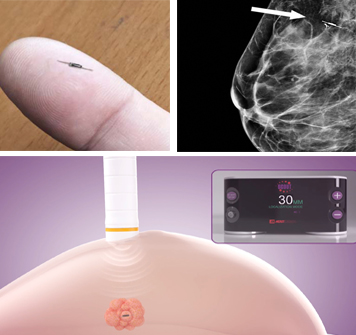 |
||
GENOMIC MEDICINE - INNOVATIVE SCIENCE AT ITS FINEST
Report originally published by Dr. Roberta Kline and www.genomicmedicineworks.com The classical definition of genetics is the study of heredity, how characteristics and traits (phenotypes) of a living organism are transmitted from one generation to the next. Genomics is the next evolution of classical genetics, and became possible only in recent decades due significant advances in DNA sequencing and computational biology. Genomic Medicine use results from clinically-based genomic testing to evaluate a person’s disease susceptibility, and develop evidence-based, personalized intervention strategies to reduce those risks. These strategies include DNA-directed lifestyle modifications, dietary recommendations, nutritional supplements and/or exercise, all of which influence how these genes function to create health or disease. Biomarker testing can then be used to evaluate whether the intervention is efficacious. With this approach, the guess-work and inefficiencies of trial-and-error strategies are greatly reduced, leading to better health more quickly and cost-effectively. See Feature article |
 |
||
RE-ACCESSING UNUSED CANCER DRUG$ - A COST-CONSCIOUS INITIATIVE
Excerpted from "The Cost of Oncology Drugs: A Pharmacy Perspective, Part I" Health care costs are the fastest growing financial segment of the U.S. economy. The Centers for Medicare and Medicaid Services (CMS) estimates health care spending in the U.S. will increase from $3.0 trillion in 2014 to $5.4 trillion by 2024.1 About 19.3% of the U.S. gross domestic product is consumed by health care, which is twice that of any other country in the world. It is often stated that the increasing cost of health care is the most significant financial threat to the U.S. economy. The cost of medications, including those for treating cancer, is the leading cause of increased health care spending. The cost of cancer care is the most rapidly increasing component of U.S. health care spending and will increase from $125 billion in 2010 to an estimated $158 billion in 2020, a 27% increase. Most experts agree that the current escalation of costs is unsustainable and, if left unchecked, will have a devastating effect on the quality of health care and an increasing negative financial impact on individuals, businesses, and government. See Full article> |
 |
||
|
|||
"IT CAN HAPPEN AGAIN- AND TO ANYONE!" Eight years after my first bout with breast cancer, I was really hoping I was done with it! Then one day, while taking a shower, I decided to check and feel for any lumps- just to make sure everything's okay. Surprisingly, I felt a lump. It was small but experience says to keep an eye on it. By September, it grew to the size of a pea and it was getting bigger. My doctor elected a sonogram then an MRI just to confirm that my cancer came back. This time, I was angry, because I felt like I did everything I needed to do. I did the chemo. I honestly didn't believe my eating would have brought my cancer back. They recommended four treatments of chemo, but this time it was stronger. For the first time, I had to take Taxotere, and then, this time, I had to do the AC. I looked at my husband and said, "This is a joke. I feel like I'm being punked… we're going to do this again!" (See Vanessa's complete article in Awareness for aCure/Survivor Stories) |
||||||||||||||||
|
||||||||||||||||
 |
FOR IMMEDIATE RELEASE: Awareness for a Cure Shares Airtime with Male Breast Cancer Coaltion @WBAB "Plugged Into Long Island" with Ted Lindner has been supporting all local non-profit groups since 2015, conducting exclusive live interviews with community leaders, fundraisers and cancer foundations. The popular island rock-station airs some of the most current shows that spotlight our many helpful crusaders. • SEE VIDEO CLIPS FROM THE INTERVIEW • SEE COMPLETE PRESS RELEASE |
|||||||||||||||
 |
A NEW WEAPON AGAINST RECURRENCE
"I have helped support cancer patients emotionally throughout their battle... to stay in the fight and maintain that inner strength that we all need to empower our immune system. But taking on the mindset to prevent RECURRENCE is (in many ways) another major hurdle. COMPLACENCE tends to take over especially after surgery, but this is the most important time when we need to stay alert. Join a prevention program where your physician, a trusted coach or health advisor can help you structure your new lifestyle" - JESSICA GLYNN, LCSW is a practicing professional psychotherapist in NYC and is one of our top mental health advisors at the NY Cancer Resource Alliance's "Get Checked Now!" program.

Welcome to SMART SENSE- our new section publishing some of the latest 'smarticles' in the world of wellness from some of the most recognized supporters of a healthy existence 2.0! Meet our patient advocates, lifestyle & nutrition advisors and professional cancer coaches and get the latest insights on how to live up to that lifestyle upgrade that you deserve. Part of our mission in fighting cancer recurrence (and to stay in remission) is to subscribe to a personal program designed to keep the bad stuff away. That's the road to Ultimate Wellness! |
|
Get Smart about your Environment with This episode discusses many of the everyday chemicals in our food, drinking water, cookware, cleaning products, personal care products, and even in the air we breathe are not tested for safety that can cause both short and long-term health issues. It offers the most sensible things that you can do right now to reduce exposures from harmful chemicals including: 1) Decrease canned foods |
|
9 KEY FACTORS IN RADICAL REMISSION (by: Atara Weisberger) • Radically changing your diet (primarily eliminating sugar, dairy, meat and refined foods) These 9 key factors in radical remission are the same powerful drivers of true wellness for everyone. If the body can heal itself from major illness with this holistic approach to self-care, how dramatically can we shift our sense of well-being if we adopt these principles when the body is not fighting for it's life? (TELL ME MORE!) |
HEREDITARY CANCERS A hereditary cancer syndrome is present when a person, because of an inherited mutation, has an increased risk of developing certain tumors which can already develop at a relatively early age. In most known hereditary malignant syndromes the elevated cancer risk is due to a mutation of a single gene (monogenic hereditary diseases). The affected genes concerned usually have a controlling function on the cell cycle or the repair of DNA damage. Sporadically occurring, i.e., nonhereditary tumors are also caused by an increased incidence of mutations in these genes. In these cases, however, the genetic changes have newly developed in the cells of the tissue concerned (somatic mutations) and are not present in the other cells of the body. (source, NIH) |
||||||
SEE COMPLETE ARTICLE IN THE JOURNAL FOR MODERN HEALING
|
 |
Welcome to the World of CARE
The desire to extend a helping hand to those in need is in all of us- especially when someone's health or physical well being is at risk. Leading the global front of this helping hand means searching for a cure against ALL major diseases and banding together as a community to form a solid support resource system from a grassroots level.
In the early 1900's, identifying cancer meant certain death. This brought the medical and non-medical people together to help establish the beginnings of what is to become a world-wide mission to battle and elimintate cancers and other devastating illnesses. Some of the most remarkable organizations have formed such as the Leukemia & Lymphoma Society (1949) and the American Cancer Society (1913) who worked tirelessly in their crusade by assembling fundraisers, perform outreach projects and conduct educational programs-- all in the name of finding help for the many victims while funding the continuance of medical research for advanced treatment options. In recent years, cancer mortality has successfully shown a consistent decline due to the effectiveness of modern treatments and advanced methodologies. Where strongly funded and well-supported sciences are gaining significant technological advantage over what was once a vastly unknown disease, the rate of survivors are measuring well above the stats from years prior. But the fight is far from over.
| RECENT FEATURE ENTRIES & EDITORIALS | ||
Visit: Awareness for a Cure "Survivor Stories" If you have a survivor story worth telling and wish to share it with us on camera, just drop us a line (email: awareness4acure@gmail.com). Your story can help so many pull through the rough parts of recovery. |
||
One of the main reasons for public awareness includes the empowering inspiration of 'good news'. Especially in the fight against chronic diseases like cancer, success stories from innovations, medical breakthroughs and personal achievements, "positivity" in the form of a testimonial can be quite impactful to us all. Hearing about a survivor's journey can reinforce our inner strength throughout our own personal challenges. They can easily help us through the dark loneliness of illness and help elevate us through the emotional hurdles of the treatment and (even) post-treatment phases. Here is just one of a growing number of stories direct from a cancer survivor working her way into remission. Rachel Klein has completed her treatments battling Leukemia and reflects on how it all happened.
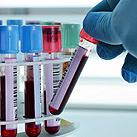 |
Recently, a new form of blood test called IvyGene can confirm the presence of cancer as early as stage 1 by providing measurable data in the form of a score to make it easier to understand- while confirming the presence of cancer early, when it can be more easily managed and treated. "...our mission is to make cancer testing available and affordable for everyone. We work closely with thousands of physicians nationwide to provide early cancer confirmation and save lives sooner. Unlike many genetic tests that use DNA to determine the propensity or possibility of developing cancer over time, the IvyGene test confirms actual disease presence at the time of testing." (see complete article)
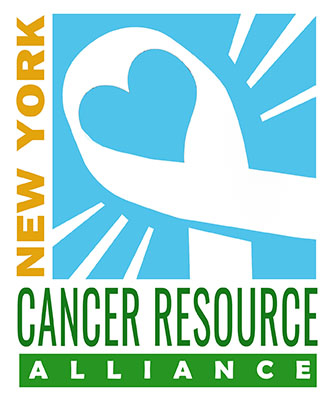 WE SUPPORT THE SUPPORTERS
WE SUPPORT THE SUPPORTERS
The world of cancer care is comprised of some of the most dedicated and compassionate individuals who committed much (if not most) of their lives into the pursuits of helping others. To truly get in the fight, there is no better way than to bond with colleagues and gain the support of our fellow do-gooders. The New York Cancer Resource Alliance (NYCRA) is a privately managed Linkedin-based private group of cancer related professionals. NYCRA is established as a private circle of like minds bringing support to the existing resources (that's YOU) in the form of increasing your web visibility, new exposure to your events or article posts and grow your alliance. (Visit our website) *** NYCRA NEWS FLASH ***
| UCLA Offers HIFU Treatment for Recurrent Prostate Cancer | Curing prostate cancer with ultrasound: HIFU arrives at UCLA | Leonard Marks, MD |
| UCLA Health is among the world’s most comprehensive academic health systems, with a mission to provide state-of-the-art patient care, train top medical professionals and support pioneering research and discovery. It includes four hospitals on two campuses — Ronald Reagan UCLA Medical Center, UCLA Mattel Children’s Hospital and the Stewart and Lynda Resnick Neuropsychiatric Hospital at UCLA in the Westwood area of Los Angeles, and UCLA Health - Santa Monica Medical Center – and more than 200 medical practices throughout Southern California. UCLA Health also includes the David Geffen School of Medicine at UCLA. | |
 |
HIGH MARKS FOR HIFU IN EARLY PROSTATE CANCER
by Charles Bankhead, Senior Associate Editor, MedPage Today | July 10, 2018
Failure-free survival of almost 90% at 5 years
Men with newly diagnosed, nonmetastatic prostate cancer had a 5-year failure-free survival (FFS) of 88% when treated with focal high-intensity focused ultrasound (HIFU) therapy, results of a multicenter European clinical experience showed. The 625-patient cohort had a 5-year overall survival of 99%, and none of the patients died of prostate cancer during a median follow-up of 56 months. In a subgroup of men who submitted questionnaires on patient-reported outcomes, 98% said they did not require absorbent pads for urinary incontinence. "While it is accepted that whole-gland radical prostatectomy and radical radiotherapy are effective in treating clinically significant nonmetastatic prostate cancer these modalities involve significant probabilities of urinary and sexual side effects, and some bowel toxicity in the case of radiotherapy," Hashim U. Ahmed, MD, of University College London, and co-authors reported in European Urology. "Focal therapy, by treating known areas of cancer with a margin, aims to preserve prostate tissue and minimize damage to the neurovascular bundles, bladder neck, external urethral sphincter, and rectum." "We have shown that this strategy has a low probability of treatment-related side effects and achieves good cancer control in the medium term. Despite the absence of long-term follow-up, we find these results reassuring and acceptable, considering that we predominantly used focal HIFU in intermediate- and high-risk cancer." The study reflects improved outcomes that have occurred since urologic oncologists added local HIFU to their armamentarium, said Leonard S. Marks, MD, of the University of California Los Angeles, who was not involved in the study. A UCLA-supported study of focal HIFU for newly diagnosed prostate cancer is ongoing. (see full article: go to medpagetoday.com)
HIGH-INTENSITY FOCUSED ULTRASOUND OFFERS NONINVASIVE TREATMENT FOR CANCER PATIENTS
Melissa Rohman | March 19, 2018 | Oncology Imaging
 |
High-intensity focused ultrasound (HIFU) may potentially replace drug treatment for pain in cancer patients when combined with surgery, radiation therapy or chemotherapy, according to new research published online in the March-April 2018 issue of Radiographics. Cancer related pain may directly stem from tumors, injury to nociceptors or result from surgery or radiation therapy and is commonly treated with prescribed opioid analgesics. The noninvasive technique of HIFU however, which is approved for uterine fibroids, bone metastases, essential tremors and encouraged to treat pancreatic cancers, may be more effective than drugs and spare patients serious side effects and toxicity, according to researchers. At the forefront of HIPU treatment is precision: MRI technology localizes high-intensity ultrasound waves on a targeted region of the body without damaging surrounding tissues or organs. Noninvasive in nature and able to be safely repeated and combined with chemotherapy or radiation therapy, HIPU alleviates cancer related pain through tissue denervation, tumor mass reduction and neuromodulation, the researchers wrote, ultimately offering a multimodality approach to treating malignant diseases. (see complete article)





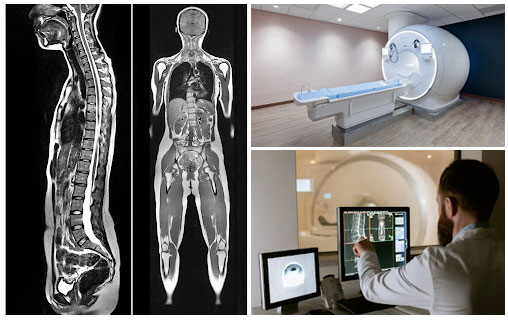








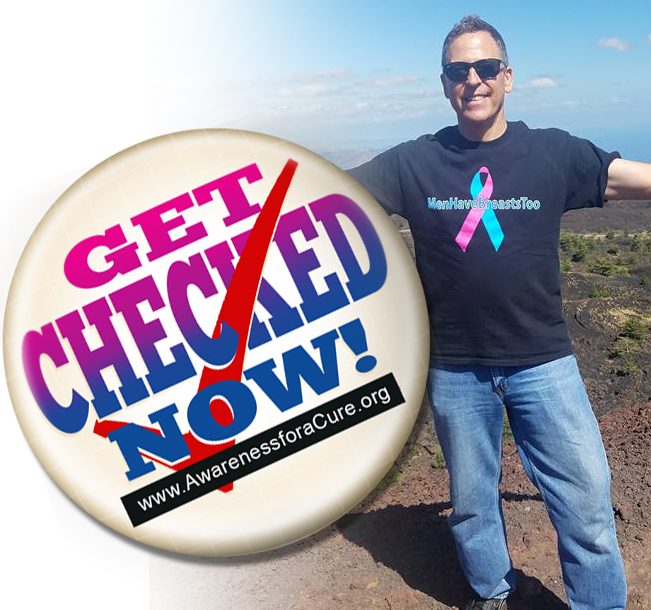 CANCER RECURRENCE IN THE MOST RARE CASES:
CANCER RECURRENCE IN THE MOST RARE CASES:
